Build your identity graph
We assist you in building your First-Party identity graph.
Does it make sense to build your First-Party identity graph?
Improve your return on ad spend (ROAS)
- YES, if you want to personalise your message on your own media or paid media to get better conversions.
- YES, if you want to optimise your media spend: having your own identity graph allows you to improve your returning on adversing spend.
- YES, if you want to improve attribution.

Build your own First-Party Identity graph.

How do you build your First-Party identity graph?
Teavaro helps you to identify your customers and prospects through 5 different identifications methods:

Identification
Login Identification
The device / browser combination or app on which the login occurs is linked with the ID Graph through a first-party cookie.
Examples are: App login, self service portal or E-shop login.
This identification method works as long as the first-party cookie on the device is not deleted or expired, even if a user returns to the webpage or app without logging in again.

Identification
Self Identification
A user provides an identifier such as an email or telephone number in a digital form or dialogue. The device / browser combination or app on which the dialogue occurs is linked to the identity graph. This method can be used with, for example:
- a newsletter subscription on a website,
- any forms that request identifiers like an email address from users in exchange for downloading a white paper, using a calculator, or requesting a consultation,
- a pop-up where a user is explicitly asked to provide an email address in return for sending a voucher to that email or a mobile phone number to be called back.

Identification
Click Identification
With the click identification method, digital identity can be transferred from one digital channel to another. The clickthrough contains an identifier used to link the device / browser combination or app on which the link is opened to the identity graph.
Examples are: Click to call, click to app,clic to click to page (web). With every click, such as from email to web or app to web, the number of identified and addressable users increases.

Identification
Cross-domain Identification
With the help of this method, users can be recognised across multiple websites with different domains. Once a visit to another domain is detected a multi-domain profile is created.
The effect is that once a visitor is identified as a customer on one domain this identification can be used for all associated domains. A user that is still “anonymous” can be recognised as the same user across all associated domains.

Identification /
Network Signal
Network Identification / Network Signal
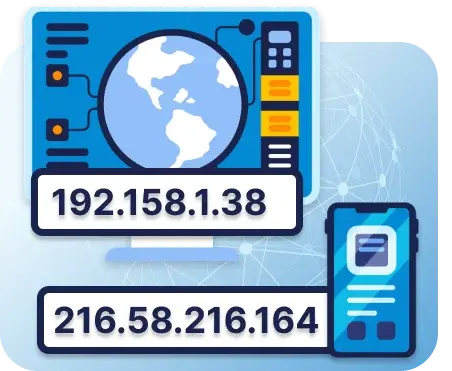
Network identification for Network Provider
A user can be identified through IP address resolution. This method can be used by network providers to identify their own customers without the need for login or any other user’s input or action.
There are two types of network identification:
· mobile network user identification, and
· fixed net (cable, DSL, fibre) identification, which typically identifies at household level.
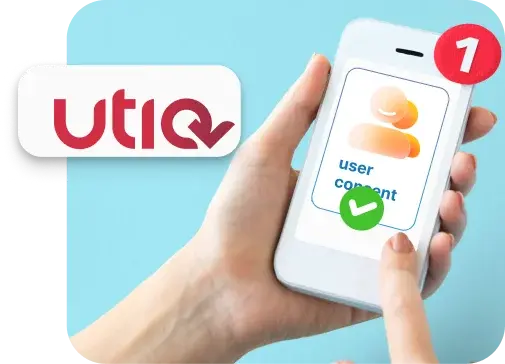
Network Signal (Utiq)
Companies that are not network providers but use Utiq’s Authentic Consent Service can use their martechpass which is based on a network signal to enhance their own identity graph independent of browser restrictions.
Login Identification
The device / browser combination or app on which the login occurs is linked with the ID Graph through a first-party cookie.
Examples are: App login, self service portal or E-shop login.
This identification method works as long as the first-party cookie on the device is not deleted or expired, even if a user returns to the webpage or app without logging in again.

Self Identification
A user provides an identifier such as an email or telephone number in a digital form or dialogue. The device / browser combination or app on which the dialogue occurs is linked to the identity graph. This method can be used with, for example:
- a newsletter subscription on a website,
- any forms that request identifiers like an email address from users in exchange for downloading a white paper, using a calculator, or requesting a consultation,
- a pop-up where a user is explicitly asked to provide an email address in return for sending a voucher to that email or a mobile phone number to be called back.

Click Identification
With the click identification method, digital identity can be transferred from one digital channel to another. The clickthrough contains an identifier used to link the device / browser combination or app on which the link is opened to the identity graph.
Examples are: Click to call, click to app,clic to click to page (web). With every click, such as from email to web or app to web, the number of identified and addressable users increases.

Cross-domain Identification
With the help of this method, users can be recognised across multiple websites with different domains. Once a visit to another domain is detected a multi-domain profile is created.
The effect is that once a visitor is identified as a customer on one domain this identification can be used for all associated domains. A user that is still “anonymous” can be recognised as the same user across all associated domains.

Network Identification / Network Signal

Network identification for Network Provider
A user can be identified through IP address resolution. This method can be used by network providers to identify their own customers without the need for login or any other user’s input or action.
There are two types of network identification:
· mobile network user identification, and
· fixed net (cable, DSL, fibre) identification, which typically identifies at household level.

Network Signal (Utiq)
Companies that are not network providers but use Utiq’s Authentic Consent Service can use their martechpass which is based on a network signal to enhance their own identity graph independent of browser restrictions.
You can use Utiq's martechpass to enhance your ID Graph.
This method allows you to leverage network signals, which previously were exclusive to telecommunication companies, and increase privacy compliant website visitor identification without using fingerprinting.
Why Teavaro's identity graph is the best
option for you.
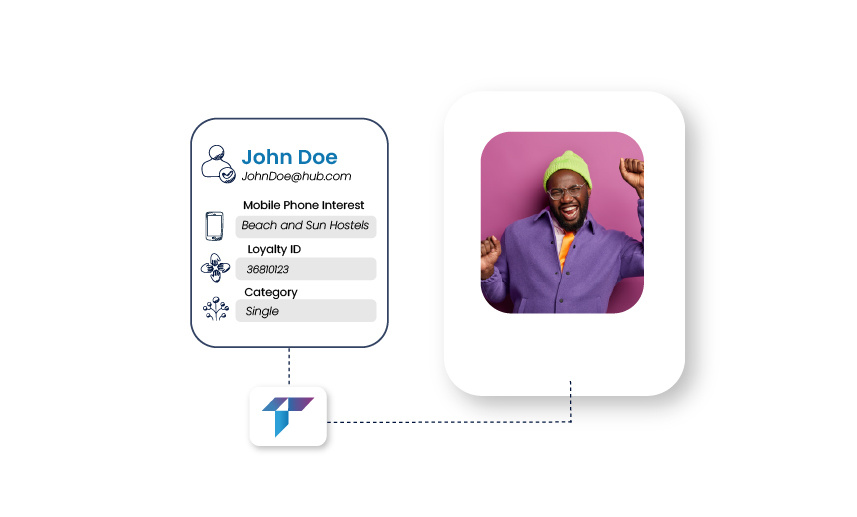
The most complete
ID Graph.
Teavaro’s Identity Resolution Platform combines proven digital identification methods to build a powerful deterministic ID Graph for you based on user consent. We do not only provide the technical platform but ensure that you create real value from your identity graph by combining thought leadership with practical implementation experience. This helps you to identify more users than with any other platform.
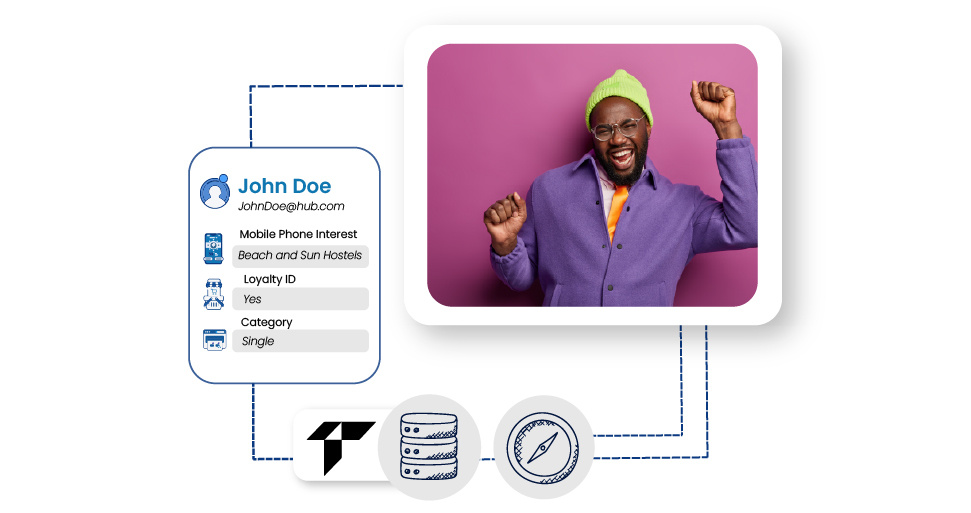
Your ID Graph remains accurate.
An identity graph is in constant flux as people’s behaviours, interactions and even their devices change, impacting their personal identifiers and how we identify them. Teavaro’s Identity Resolution Platform provides the methods to maintain your identity graph in real-time so that its quality does not deterioriate over time but stays accurate and the number of links grow over time.

Your ID Graph is a corporate asset.
We help you to build and leverage your own first-party ID graph so that it becomes a true corporate asset that is under your full control especially from a privacy perspective. In contrast public third-party ID graphs are not your own and anyone in the industry can use them, raising value, integrity and data privacy concerns.
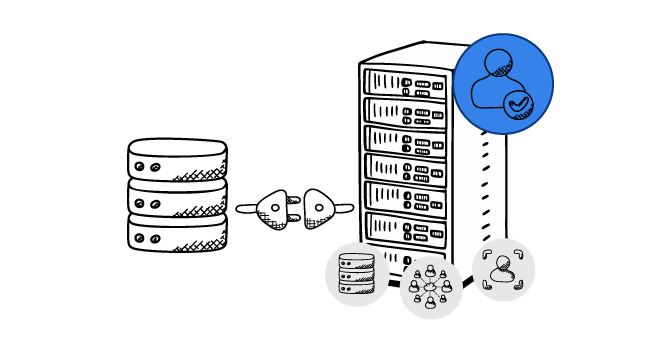
Your ID Graph is a MarTech booster.
Teavaro’s Identity Resolution Platform can be easily integrated into your exisiting MarTech stack without creating the need for large migration projects. By providing resolved digital identities to your MarTech and AdTech solutions you can dramatically boost their effectiveness.

The most complete
ID Graph.
Teavaro’s Identity Resolution Platform combines proven digital identification methods to build a powerful deterministic ID Graph for you based on user consent. We do not only provide the technical platform but ensure that you create real value from your identity graph by combining thought leadership with practical implementation experience. This helps you to identify more users than with any other platform.

Your ID Graph remains accurate.
An identity graph is in constant flux as people’s behaviours, interactions and even their devices change, impacting their personal identifiers and how we identify them. Teavaro’s Identity Resolution Platform provides the methods to maintain your identity graph in real-time so that its quality does not deterioriate over time but stays accurate and the number of links grow over time.

Your ID Graph is a corporate asset.
We help you to build and leverage your own first-party ID graph so that it becomes a true corporate asset that is under your full control especially from a privacy perspective. In contrast public third-party ID graphs are not your own and anyone in the industry can use them, raising value, integrity and data privacy concerns.

Your ID Graph is a MarTech booster.
Teavaro’s Identity Resolution Platform can be easily integrated into your exisiting MarTech stack without creating the need for large migration projects. By providing resolved digital identities to your MarTech and AdTech solutions you can dramatically boost their effectiveness.
Benefits of using Utiq's martechpass to enhance
your own identity graph.

Re identify users within 90 days even if they delete the first-party cookie.

Identify app users on the web, and vice versa.

Identify users across multiple owned websites and apps (cross-domain).

Deduplicate users that use webviews from social media apps.

Deduplicate users that use multiple browsers.

Deduplicate users that use same SIM card in multiple devices.

Case Study
Real case of our client in the retail industry:
How identity resolution collects more than twice the number of page and product views against known customers, enabling more personalised content based on customer information.
Client Situation:
The client is a multi brand multi category company with different domains. They already had a “simple” identity resolution solution in place, by linking customer login information to the first-party cookie on the website. In 30 days the client could resolve 6.9 million identities. This allowed the client to resolve 15% of the page views.
Introducing our Identity Resolution Methods:
When the client introduced our multi-domain identity resolution methods leveraging the login information from another website. Our customer identified 26% more clients (8.7 instead of 6.9 million identities).Even more impressive was the number of resolved page views growing from 71 to 167 million, an increase of 135% bringing the resolution of page views up from 15% to 35%.

Your First-Party ID Graph is the foundation
for the following use cases.
You can see real examples from our customers and how they benefit from our solution.

Build your First-Party
ID Graph.


Onsite
Personalisation.

Behavioural Direct Marketing.
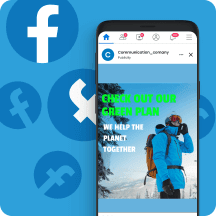
Targeting in Walled Gardens.

Targeting in the
Open Web.
